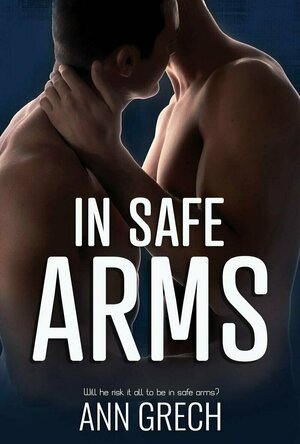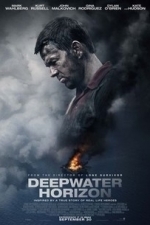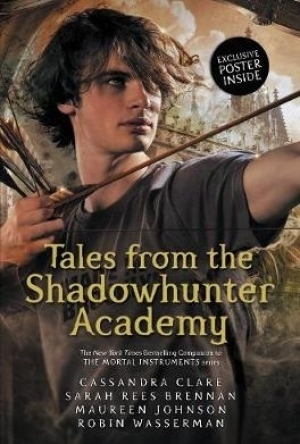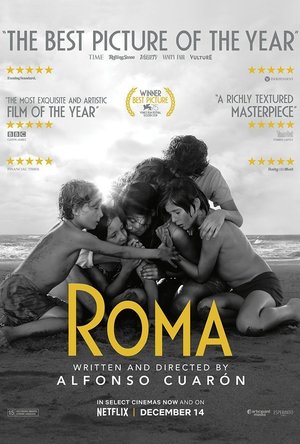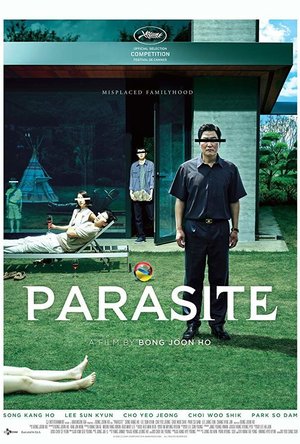Debbiereadsbook (1647 KP) rated In Safe Arms (My Truth #2) in Books
Sep 29, 2019
This is book two in the My Truth series, and I read it back to back to book one, All He Needs. While not strictly necessary to read book one before this one, I would personally recommend you do. Spoilers, is all you’ll get but book one was a 4 star read cos of one minor niggle that is explained in my review.
We met Angelo and Tristan in book and there were some indications to what might be in store for them in that book. Rick (Angelo’s brother) Mason, and Caden all pop up here, hence the spoiler tag.
THIS book, however, does NOT have that niggle and is an altogether different, difficult, heart-breaking, gut wrenching, sobbing kind of book!
I mean from the very beginning, when Tristan begins telling the tale, it’s awful reading, what happened to him at the hands of a family friend. When he is on the streets after, and what happened to him and his friend then. Tristan really does break your heart.
Then when Angelo takes up the story? OH, I wanted to wrap that man up in cotton wool and protect him! From Tristan of all people cos you know, right when they meet, Tristan is gonna break Angelo’s heart! And he does, just not in the way I was expecting.
Angelo is smitten with Tristan, right from the start, but Tristan comes across as straight and all Angelo can do is be a friend for Tristan. Then Angelo notices things, little touches, glances and the like, and it makes Angelo think.
When Tristan breaks down and finally tells Angelo everything that happened, you’ll cry, you really will! I rarely react to such extremes when READING, but I was sobbing great wracking sobs when Tristan was telling Angelo! Listening, I react more for so . . . . . oh. . . . .I need to LISTEN to this, I really do! Someone narrate it, please!
But I digress, sorry!
Because of Tristan’s history, the physical relationship between him and Angelo is slow, and takes time to build. There is an emotional connection from very early on, but the physical stuff comes much MUCH later in the book. And I LOVED that it did. Often, things move too fast for characters who suffer like Tristan did, but not so here. I did think, at one point, it might not ever happen, at all but once Tristan is able to talk to Angelo and then to professional help, things get much better, very quickly.
This is only the second book I’ve read of Ms Grech, after All He Needs, but I need to read more. She has a way of breaking your heart I’ve not come across before!
This is NOT a light and fluffy read, this is NOT a short book, both in page length and time span, this is not one of those books you can fall into and forget the world. This IS however, a stunning read that I read in one sitting and I stayed up way, WAY past my bedtime to finish it. I needed to know that things turned out okay for Angelo and Tristan, and I could not leave their story midway through.
5 stunning stars
**same worded review will appear elsewhere**

Contacts Sync for Google Gmail
Utilities and Productivity
App
••• SYNCS IPHONE WITH GOOGLE! ••• SYNCS GROUPS! ••• #1 IN DOWNLOADS & REVIEWS FOR...

Scotiabank
Finance and Utilities
App
The Scotiabank Mobile Banking app makes it easy to manage your accounts, make payments, transfer...

Contacts Journal CRM for iPad
Business and Productivity
App
Contacts Journal CRM is a powerful tool that will transform your business and personal...

Tiket.com - Pesan Tiket Online
Travel and Lifestyle
App
Tiket.com is the first and the most complete online travel agent in Indonesia that meets your...

Inspiration Maps™
Education and Productivity
App
Welcome to Inspiration Maps™, the most intuitive and powerful visual learning app on the iPad....
Bob Mann (459 KP) rated Deepwater Horizon (2016) in Movies
Sep 29, 2021
The exploratory project is way-behind and BP are not happy. Big-wigs from the company add support to Donald Vidrine, the BP site leader, in applying mounting pressure on Harrell to press on regardless without all the necessary and time-consuming tests by Schlumberger being completed. Rogue numbers in further tests are waved away as ‘glitches’. A familiar story of corporate greed and pressure overriding the expert’s better judgment.
When disaster strikes it strikes quickly, with some spectacular and exciting special effects that leave the audience especially hot under the collar. Female support is provided by the comely Andrea Fleytas (Gina Rodriguez), given the almost impossible job of keeping the floating bomb on station as chaos reigns about her. As an audience we are back on familiar ground here from classic Irwin Allen disaster movies such as “The Towering Inferno” and “The Poseidon Adventure”. Who will make it, and who won’t?
A more telling question here is “Do we care?” and unfortunately for the film, the answer is “Not really”. This feels a callous thing to say when this was a real and recent event and eleven people and – as touchingly illustrated at the end of the film in tribute – many of them family men with young kids, never went home again. But film-wise, we only really get bought into the fate of Williams, whose back-story, with cute wife (Kate Hudson) and cute daughter (Stella Allen) we get to meet and sympathize with.
We get a minimalist view of Fleytas’s backstory, but only enough to provide a recurring “Mustang” reference. And that’s it. All the other characters are just two-dimensional “rig crew”: cannon-fodder for the special effects team. The screenplay by Matthew Sand and Matthew Carnahan really doesn’t deliver enough heft to get us bought in.
While the special effects are good, the sound design isn’t, with much of the dialogue being incomprehensible.
All the acting is fine, with the ever-watchable John Malkovich nicely portraying the corporate head you love to hate. Wahlberg as well delivers enough range to make you forget in this “action mode” that he was also in “Ted”. And Rodriguez as a junior lead holds her own against the big guns in what is a creditable performance in a big film role for her.
While “Lone Survivor”/”Battleship” director Peter Berg neatly provides an insight into life on and around rigs, and (via subtitles) descriptions of the drilling process which I found interesting, this comes down to the sum of a tense build up, an hour of frenetic disaster, and then a whimper of an ending. Where were some of the dramatic scenes of conflict in the congressional hearing that the film’s opening implies might come? Where are the scenes of ecological disaster and local financial ruin to add emotional angles to the story? None of this is really exploited and the whole concoction comes across a bit “meh” as a result. Not a bad film by any means. But not one I will remember in a month or two’s time.
Kyera (8 KP) rated Tales from the Shadowhunter Academy in Books
Jan 31, 2018
The first novella is Welcome to Shadowhunter Academy, where Simon decides that he wants to become a Shadowhunter. After losing his memories, Simon must decide who he wants to be – a mundane that does not remember the Shadow World or a future Shadowhunter that may regain some of his memories. He meets a collection of students, both Shadowhunter and mundane that will be with him for the next two years as they train to become proper Shadowhunters. Although we know these characters for less time than those we’ve grown to love in the other series, they are still likable and well-developed. Over the course of the two years that the novellas take place, each character learns what it means to be a Shadowhunter, to be loyal to their friends, and to not always take the Law at face value (thanks to Simon’s incessant dialogues that Downworlders are not lesser people.) Of course, we’ve loved Simon since we met him in the Mortal Instruments but this was a great series of stories that allowed us to get to know him better (even though he was missing his memories).
The second is The Lost Herondale, in which we learn more about the beliefs of the Shadowhunters. Deserting your fellow Shadowhunters is considered the worst thing that you can do – so the punishment is severe. This novella tells us the story of Tobias Herondale and shows Simon that not every story is as black and white as it may be presented. We also learn that Catarina Loss, Magnus’ friend and current teacher at Shadowhunter Academy, saved Tobias’ child – which means that there may be a lost Herondale in the world. This plot line is mentioned first in the Mortal Instruments and pursued more in the Dark Artifices, so that is one reason why I believe this series of novellas should be read prior to beginning Lady Midnight.
The third is the Whitechapel Fiend, in which Tessa comes to Shadowhunter Academy to teach a lesson. It was lovely to see more of our favourite characters from the Infernal Devices, especially because this was a later period in time than the books so we got a glimpse into their future lives. The fourth is Nothing but Shadows, which chronicles James Herondale’s time at the Academy. It made me miss the Infernal Devices and impatient for the next series that Cassandra Clare will be writing featuring the children we got glimpses of.
The fifth is The Evil We Love and a tale from the time of Valentine’s Circle. The Circle’s history is considered a dark time and infrequently talked about in the series. Most Shadowhunters who were involved are either ashamed of their actions and largely refuse to talk about it, or dead. It’s always fascinating to see what the power and influence of a charismatic leader can get people to do. Simon learns that he knows better than to just go along with the crowd and speaks out against ideas that he doesn’t agree with. It makes him even more likable as a character because I’m sure we all have experienced times when we disagreed with someone we cared about and how difficult it might be not to just follow their lead.
The sixth is Pale Kings and Princes, which creates some foundation for the world we will experience in the Dark Artifices. We learn how Mark and Helen Blackthorn came to be, with their half-faerie lineage. It is a heart-wrenching tale and makes you question the harshness of the Cold Peace. Helen is no longer trusted, and essentially banished, because of her heritage and that action fractures her entire family – as the Blackthorn parents were murdered during the War. Helen was willing to take care of her family, but she was torn away and those kinds of wounds will certainly affect the characters of the Dark Artifices in the future.
The seventh is Bitter of Tongue essentially just reiterates the point that Downworlders are not lesser beings than mundanes or Shadowhunters. We get to see more of the Blackthorn clan, the utterly repulsive treatment of the half-fae children Mark and Helen, and a lovely wedding.
The eighth is The Fiery Trial, in which Simon and Clary are asked to serve at witnesses for Julian and Emma’s parabatai ceremony. The story focuses more on the relationship between Simon and Clary than Julian and Emma but it was nice to see the ceremony. Jace and Alec became parabati prior to the Mortal Instruments, so until now, we had not seen the ceremony performed. It also made Simon and Clary evaluation their own friendship and the depth of their connection.
The ninth is Born to Endless Night and revolves around the beloved Malec, as well as Magnus Banes short tenure at Shadowhunter Academy. The character development shown in this novella was a culmination of Alec’s experiences throughout the Mortal Instruments and how he grew as a person. While not confident and cocky like Jace, he had become secure in his own skin and learned to love (romantically). It was the most normal of the novellas, showing a behind-the-scenes type look into the lives of our favourite Mortal Instruments characters.
The final novella in the collection is Angels Twice Descending in which Simon and the other mundanes of the Academy have their Ascension. Simon must decide whether he is ready to face the risks, to give up his mundane life and embrace the dangers and responsibility of being a Shadowhunter. It was a beautiful wrap up to the series, allowing Simon the time to explore the life he was leaving behind and the family that he was gaining. As I mentioned before, I would highly recommend reading this series of novellas as it only enhances the Shadowhunter experience (and deepens the world).
Bob Mann (459 KP) rated Roma (2018) in Movies
Sep 28, 2021
A primer on 70’s Mexican History.
This is a film about ordinary life set against tumultuous times. Set in the Colonia Roma district of Mexico City (if you were puzzled, as I was, where the title came from) it is an “Upstairs, Downstairs” tale of Cleo (Yalitza Aparicio), a maid and nanny to a middle class family in the early 70’s.
There are two intertwined stories here: Cleo’s personal story and that of the family background in which she works.
Cleo has a pleasant enough life working as partners in crime in the household with Adela (Nancy García García). Life is about getting the work done (well, more of less), keeping the four children happy – to who she is devoted – and scraping enough by to spend her downtime with her martial arts boyfriend Ramón (José Manuel Guerrero Mendoza).
Meanwhile the lady of the house Senora Sofia (Marina de Tavira) has an affluent and cosseted lifestyle amid her loving family.
But times are about to change for all of the players, as events – not just the events of the ‘Mexican Dirty War’ of 1971 going on in the background – transpire to change all their lives forever.
A masterclass in framing.
It’s criminal that I wasn’t able to get to see this in the cinema. Since every frame of this movie is a masterpiece of detail. There is just so much going on that your eyes dart this way and that, and you could probably watch it five times and see more. Even the opening titles are mesmerising, as the cobbled floor becomes a screen and an airliner lazily flies across it.
Even major action sequences, that other directors would fill the screen with (“Do you KNOW how much this scene is costing for God’s sake??”), are seen as they would typically be seen in real life – second hand, from a place of hiding. This is typified by the depiction of the Corpus Christi Massacre of June ’71, where the military, and more controversially the elite El Halconazo (The Hawks) of the Mexican army, turned on a student protest. Most of the action is seen as glimpses through the windows by the characters during a shopping trip to the second floor of a department store. How this was enacted and directed is a mystery to me, but it works just brilliantly.
A masterclass in pacing and panning.
One of Cuarón’s trademarks is the long take (think “Children of Men”) and here he (literally!) goes to town with the technique. An incredibly impressive scene has Cleo and Adela running through the streets of the City to meet their lovers at the cinema. It’s a continuous pan that again defies belief in the brilliance of its execution.
Even the mundane act of Cleo tidying up the apartment is done with a glorious slow pan around the room. Some of this panning is done to set the mood for the film (“Get settled in… this is going to be a long haul”) but others manage to evoke a sense of rising dread, an example at the beach being a brilliant case in point.
The cinematography was supposed to have been done by the great Emmanuel Lubezki, but he was unavailable so Cuarón did it himself! And it’s quite brilliant. So, that’s a lesson learned then that will reduce the budget for next time!
A personal story.
Cuarón wrote the script. Of course he did… it’s his story! He’s the same age as I am, so was nine years old for the autobiographical events featured in the film (he is the kid who gets punished for eavesdropping). Numerous aspects of the film are from his own childhood, including the fact that his younger brother kept spookily coming out with things that he’d done in his past lives! It’s a painful true story of his upbringing and of the life of Liboria Rodríguez: “Libo” to whom the film is dedicated.
Where the script is delightful is in never destroying the mood with lengthy exposition. Both of the key stories evolve slowly and only gradually do you work out what’s really going on. This is grown-up cinema at its finest.
It’s also a love letter from Cuarón to the cinema of his youth, a passion that sparked his eventual career. We see a number of trips to the local fleapit, and in one cute scene we seen a clip from the Gregory Peck space epic “Marooned”: the film that inspired Cuarón’s own masterpiece “Gravity“.
A naturalistic cast.
Casting a large proportion of the cast from unknowns feels like a great risk, but its a risk that pays off handsomely, particularly in the case of Yalitza Aparicio, who is breathtakingly naturalistic. Cuarón withheld the script from his cast, so some of the “acting” is not acting at all – specifically a gruelling and heartrending scene featuring Cleo later in the film. That’s real and raw emotion on the screen.
Marina de Tavira, although an actress with a track record, is also mightily impressive as the beleaguered and troubled wife.
Final Thoughts.
This is a masterpiece, and thoroughly deserves the “Best Picture” awards it has been getting. It’s certainly my odds on favourite, as well as being my pick, for the Oscar on Sunday. Will it be for everyone? Probably not.
There are some scenes which feel slightly ostentatious. A forest fire scene is brilliantly done (“Put out the small fires kids”), but then a guy in a monster suit pulls off his head-wear and starts singing a long and mournful song. Sorry?
There will also be many I suspect who will find the leisurely pace of the film excruciating; “JUST GET ON WITH IT” I hear them yelling at the screen. But if you give it the time and let it soak in, then you WILL be moved and you WILL remember the film long after you’ve seen it.
I remain cross however that this was released through Netflix. This is a film that deserves a full and widespread cinema release in 70mm format. It’s like taking an iPhone snap of the Mona Lisa and putting the phone on display instead.
Kirk Bage (1775 KP) rated Parasite (2019) in Movies
Jan 22, 2021 (Updated Jan 22, 2021)
The hype surrounding this movie in January was immense, for a film coming from Korea out of the blue, with an image and plot that didn’t fit into any of the normal marketing boxes. Every review ranged from this is incredible to… just see it for yourself. Nothing could have been more intriguing. I was certainly hooked on the idea, although by the time the Oscars came around I still hadn’t managed to see it at the cinema.
I found it fascinating that the academy had chosen 2020 as the year to change the dodgy sounding “Best Foreign Language film” to “Best International film”. It was about time, really, to acknowledge the us and them philosophy of world cinema didn’t really wash. And as the sublime Roma had paved the way for non English films to be considered again in all the main categories as serious contenders, I just had a feeling this was the year Oscar would make a statement with this film.
And so it turned out to be. It was a strong year. At the time I was a huge Joker advocate, having not yet seen 1917 either. Looking back now, I think, although not as perfect as Roma the year before, Parasite certainly deserves the praise and accolades it garnered from all around the world. Although any of those 3 films (Parasite, 1917 and Joker) would have been obvious winners in any other less competitive year.
So what is it about Parasite that raises it above the masses? Well, for a start it looks both beautiful and awe inspiring in every shot. Each image is designed and framed expertly to create a montage of mood and form that holds the multi-layered storytelling in place. Rarely have I seen such a well balanced and crisp visual design for a film, of any kind. Even with the subtitles off there is plenty to engage the eye and mind here. But it’s real secret is how it draws you in to believing you are watching one kind of satirical drama for about 40 minutes and then punches you in the solar plexus with the revelation that it has mutated into something darker, weirder and more entertaining on every level.
The “twist” when it comes along is so well placed and unexpected, even if you are told to expect one, that it entirely transforms your experience. You have been engaging with social issues and a basic satire on the rich vs the poor, where true power is a good wifi signal, and then, blam, you are watching a modern horror story with truly disturbing ramifications. I found this gear shift riveting and striking in a way that I can’t remember from a film in a long time.
But, looking back on it after several months, is that tonal shift really a strength? Some criticism, however minor in the scheme of things, did point this out, that what we get with Parasite is an unfocused and confused mix of genres that doesn’t entirely cohere. I mean, I see that, but have to disagree, simply because the writing at every point is too intelligent and sharp to give a damn about staying still and balanced on just one idea. Parasite is an exercise in energetic chaos that juggles many balls, all as interesting as one another, without dropping any of them.
Poverty, class, elitism, generational gaps, vanity, work ethics and morality, roles within a family unit, loyalty, weakness, revenge and bitterness are all themes here, and many more. Start going down the alley of one conversation that Parasite starts and end up somewhere entirely different in just a few sentences. And that is why it is worth seeing, several times. And that is why it works and was rewarded.
Is it a film I will be keen to see over again as the years pass? Yes and no. I’d probably be most interested to see it with someone who hasn’t seen it, to see their reaction. But I’m much less likely to give it multiple watches than the previous mentioned Joker and 1917, or indeed Roma, which I just can’t help comparing it to, even though they have virtually nothing in common, as I wish it had been Roma that made history at the awards rather than this. Of course, it is personal taste at that level of quality, but I believe Roma to be the better film.
If nothing else, however, Parasite marks the graduation of Bong Joon Ho, from a quirky filmmaker, whose interesting but not quite great near misses include The Host, Snowpiercer and Okja – all entertaining but flawed – to an auteur of considerable skill. Will the elements of his mind and vision ever align this well again. I hope so. I’ll be looking out for it, as will the rest of the world now.
